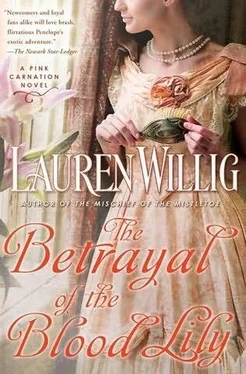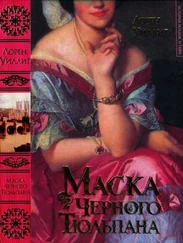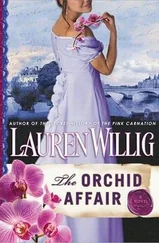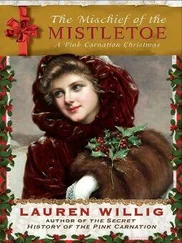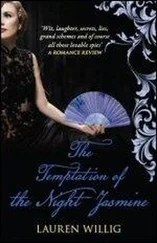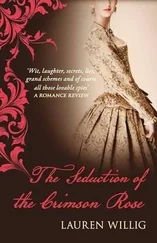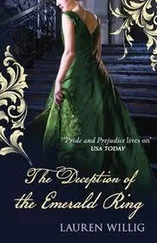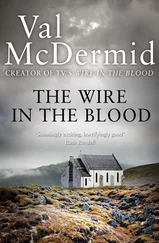“I wonder what happened to all the old East India Company documents,” mused Colin, his fingers tapping against the back of my chair. “They had to go somewhere after they tore the East India House down.”
“I don’t know. I’ve never done any work with Indian documents.” There was a very nice new professor in the history department back at Harvard whose specialty was eighteenth-century India, but I had only met him very briefly at a department cocktail party the previous spring, hardly enough of an acquaintance to feel comfortable e-mailing and nagging him for advice. I was sure he would have no idea who I was. After the first thirty or so introductions, one grad student begins to look much like another.
“You could ask Aunt Arabella,” suggested Serena. “She spent a good deal of time in that part of the world.”
“Really?” I remembered Mrs. Selwick-Alderly’s flat, with its chintz and white moldings and unexpectedly exotic accoutrements, relics of the last gasp of Empire. There had been a tufted Zulu spear and many-legged Indian gods sitting side by side with the usual Dresden shepherdesses and Minton candy dishes.
Because it had been Mrs. Selwick-Alderly who had introduced me to Colin — so to speak — I had warm and fuzzy feelings for her, even if we weren’t quite on “Aunt Arabella” terms yet.
“Her husband was stationed out there during World War Two,” said Colin. “And they stayed on until the transfer of power in 1947. If nothing else, she should at least have some idea of where you can start to look.”
“Thanks,” I said. “I’ll do that.”
Feeling like I had hogged the conversation long enough, I quickly turned to Serena and asked her a question about the party her gallery was throwing for Valentine’s Day. Nick and Martin both pledged their attendance. I knew Serena had invited Pammy, too. This was going to get very interesting very quickly. I wondered, distractedly, whether Pammy might be rerouted to Martin. But he wasn’t really her type. It wasn’t that he wasn’t good-looking; he was pleasant enough with his close-cropped, curly dark hair and broad-shouldered build. But Pammy tended to go more for Masters of the Universe types, not Eeyore. As she was fond of saying, she didn’t take on reclamation projects.
I decided to table the whole question for later. It was still a good week till Valentine’s Day. I had time to sound out Pammy and lay my plans. In the meantime, I was just happy. Happy to be out on a sunny Sunday, happy to be with Colin, happy, happy, happy. It helped that I had had about seven cups of coffee at lunch. I was flying high on caffeine and contentment.
I hugged Colin’s arm close to my side as we strolled away from the restaurant. “That was fun.”
It was frigid cold out, but without having to arrange it between us, we set out to walk back to my flat. That was another thing we had in common, I thought happily; we both liked walking places. It would have been a shame to waste all that lovely sunshine by going down into the dark depths of the Tube. With Colin going back to Sussex tomorrow morning, I didn’t want to waste a single, golden moment.
“I hadn’t realized you were researching India,” he said, as we walked down a street lined with stucco town houses.
“I wasn’t,” I admitted. “But the last time I was up at Selwick Hall with you, I found a couple of letters from Penelope Deveraux.”
“From who?”
I wasn’t surprised by the blank look. Colin had mentioned that as a young man he had read through some of the family papers related to the Pink Carnation, but there was no reason for him to remember Penelope. She had been only peripherally involved in the Pink Carnation’s activities. “She was a friend of the Purple Gentian’s younger sister.”
“And that makes her — ?” prompted Colin.
“Absolutely nothing,” I replied, quoting Spaceballs . “Actually, what it makes her is Henrietta’s correspondent. She got herself into a bit of trouble and was married off in a hurry and sent to India until the scandal could die down at home. When I was rooting around in your archives, I found a couple of letters from her to Henrietta.”
There had been two letters, both from the autumn of 1804, one marked Calcutta, the second, written a month later, from Hyderabad. It was the second letter that had mentioned a spy called the Marigold.
I had come across a previous reference to the Marigold in a different set of papers, connected to the same group who had tried to kidnap King George and replace him with an imposter under the guise of a recurrence of his old madness. The connection had piqued my interest. Plus, I kind of wanted to know what happened to Penelope. It is amazing how attached one can get to the historical subjects in the course of research. It becomes a bit like gossiping about old friends. You want to know how things turned out for them.
Boy that he was, Colin wasn’t interested in the personal bits, like just how Penelope had gotten herself into trouble and with whom. He cut straight to the chase. “Where do the spies come in?”
“Well,” I said, taking a deep breath. “Here’s what I have so far. . . .”
There were times when Lady Frederick Staines, nee Miss Penelope Deveraux, deeply regretted her lack of a portable rack and thumbscrews.
Now was one of them. Rain drummed against the roof of the carriage like a set of impatient fingers. Penelope knew just how it felt.
“You spoke to Lord Wellesley, didn’t you?” she asked her husband, as though her husband’s interview with the Governor General of India were one of complete indifference to her and nothing at all to do with the way she was expected to spend the next year of her life.
Freddy shrugged.
Penelope was learning to hate that shrug. It was a shrug amply indicative of her place in the world, somewhere just about on a level with a sofa cushion, convenient to lean against but unworthy of conversational effort.
That hadn’t been the case eight months ago.
Eight months ago they hadn’t been married. Eight months ago Freddy had still been trying to get her out of the ballroom into an alcove, a balcony, a bedroom, whichever enclosed space could best suit the purpose of seduction. It was a fitting enough commentary on the rake’s progress, from silver-tongued seducer to indifferent spouse in the space of less than a year.
Not that Freddy had ever been all that silver-tongued. Nor, to be fair, had he done all the seducing.
How was she to have known that a bit of canoodling would land them both in India?
Outside, rain pounded against the roof of the carriage, not the gentle tippety tap of an English drizzle, but the full-out deluge of an Oriental monsoon. They had sailed up the Hooghly into Calcutta that morning after five endless months on a creaking, pitching vessel, replacing water beneath them with water all around them, rain crashing against the esplanade, grinding the carefully planted English flowers that lined the sides into the muck, all but obscuring the conveyance that had been sent for them by the Governor General himself, with its attendant clutter of soaked and chattering servants, proffering umbrellas, squabbling over luggage, pulling and propelling them into a very large, very heavy carriage.
If she had thought about it at all, Penelope would have expected Calcutta to be sunny.
But then, she hadn’t given it much thought, not any of it. It had all happened too quickly for thought, ruined in January, married in February, on a boat to the tropics by March. The future had seemed unimportant compared to the exigencies of the present. Penelope had been too busy brazening it out to wonder about little things like where they were to go and how they were to live. India was away and that was enough. Away from her mother’s shrill reproaches ( If you had to get yourself compromised, couldn’t you at least have picked an older son? ); Charlotte’s wide-eyed concern; Henrietta’s clumsy attempts to get her to talk about it , as though talking would make the least bit of difference to the reality of it all. Ruined was ruined was ruined, so what was the point of compounding it by discussing it?
Читать дальше
